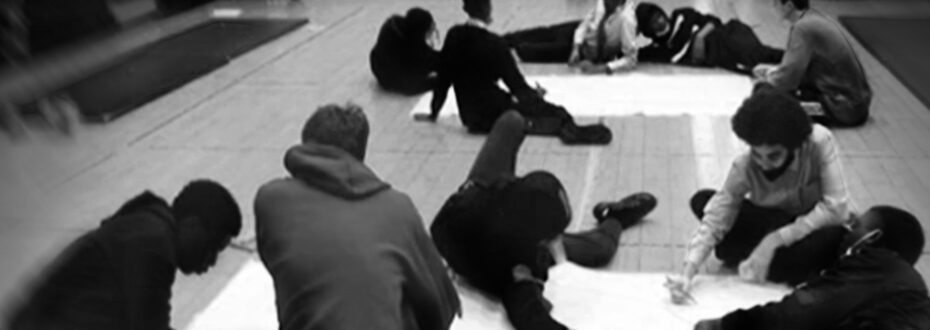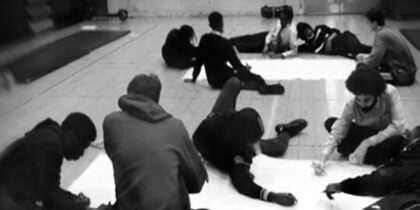Reaching out to youth clubs can enable mental health services to support young people who they might otherwise not reach, according to research published today by Centre for Mental Health.
Always there for us is an evaluation of Project Future’s work at Bruce Grove Youth Club in Haringey, North London. For two years, psychologists from Project Future worked at the youth club for two days a week. They supported young men who went to the club with their mental health and wellbeing and provided training, advice and support to the youth workers there.
Always there for us finds that the Project Future workers provided valuable support for the young men’s mental health. They reached young people who were marginalised and at high risk of poor mental health. They offered young people safe spaces to open up about their emotions and discuss concerns about gangs, racism and school pressures. And they gave youth workers more confidence in dealing with mental health issues. This was especially important in the wake of the pandemic, which increased the need for emotional support.
Always there for us concludes that placing mental health workers in a youth club enables them to reach young people who would not normally trust mental health services. By using game-based activities to engage and educate young men about their wellbeing, it creates an openness about mental health that traditional approaches cannot achieve. And by bringing the complementary skills psychologists and youth workers together, it takes the stigma away from mental health.
The report calls for mental health workers to reach out to youth clubs to improve access to psychological support for young people. It also calls on professional bodies and service providers to build the diversity of the mental health workforce so that it is more representative of the communities it seeks to serve.
Centre for Mental Health chief executive Dr Sarah Hughes said: “Project Future has once again shown what it is possible to achieve when it takes mental health support out to where young people are at. They have engaged marginalised young men through group activities and by focusing on what matters to them. They created safe spaces for young men to talk about their wellbeing in the context of their lives. And they helped the youth club to become a therapeutic space for young people and staff during the pandemic. We hope that this will inspire other mental health services to reach out to youth clubs and find creative new ways to engage young people to support their wellbeing.”
Chelsea Gardener, Clinical Psychologist and Lead for the Bruce Grove Youth Club and Project Future Partnership, said: “This partnership was a powerful example of genuine coproduction between psychology (from project future), youth workers and young people, with mutual learning and respecting of each other’s ‘expertise’. The power is indicated by the high engagement and interventions which were created. For us it highlighted the importance of really meeting young people and systems where they are, with the actual possibility of providing adapted, acceptable and accessible mental health provision which met the needs and highlighted the resilience’s of communities, which experience marginalisation. It’s like a blueprint for the groundwork and the provision of real sustainable change in mental health services and outcomes for our cohort.”
Akin Akintola, Bruce Grove Senior Youth Practitioner, said: “A lot of the young people that attend Bruce Grove would not access the current services and have never have had the opportunity to speak to a therapist, for various barriers which is a big issue given the vulnerabilities and background of our young people. But Chelsea and Project Future’s approach effectively made help available on their doorstep. They were there and built relationships to provide well received interventions, which really has greatly improved the lives and emotional wellbeing of our young people. Also their training and support have enabled staff to help young people better, and even in sustaining ourselves in the work we do. This is for our overall practice, but also for example the way, they supported the team during a loss of a young person, which enabled staff and young people to get support they need. We need it to continue!”



